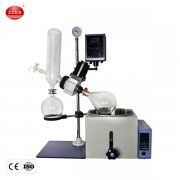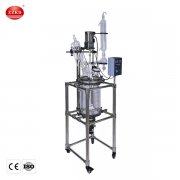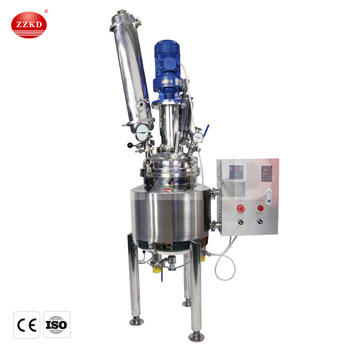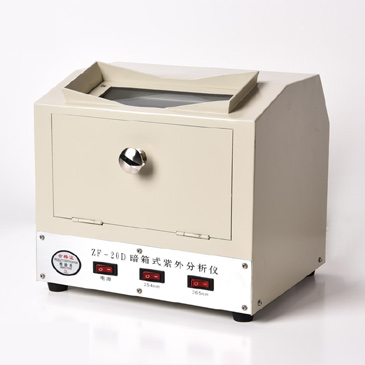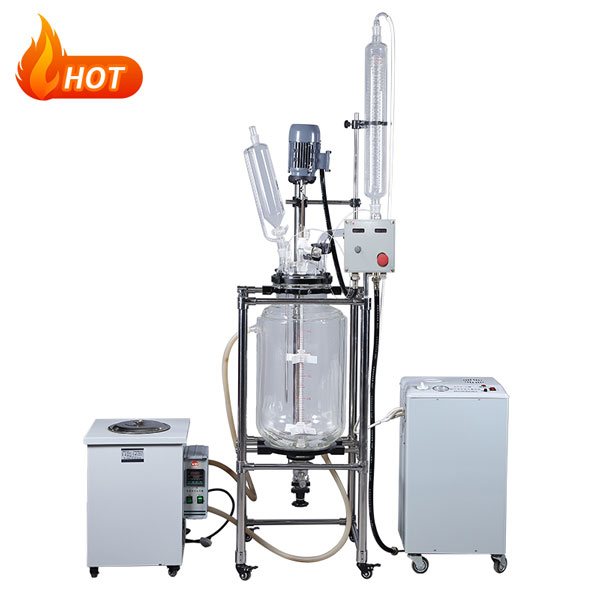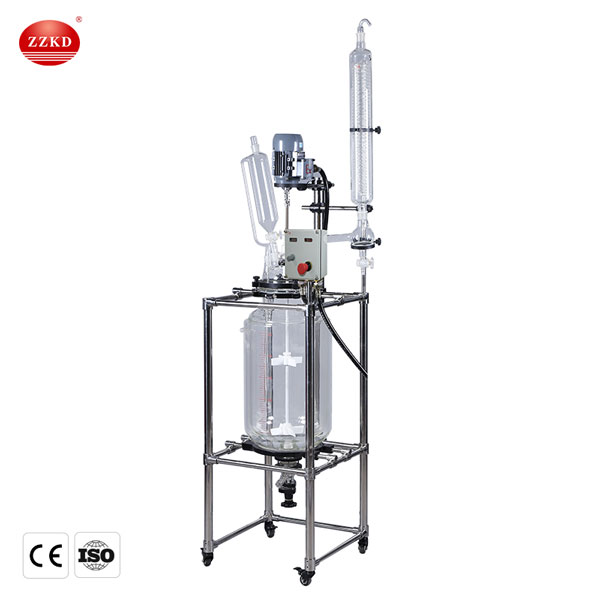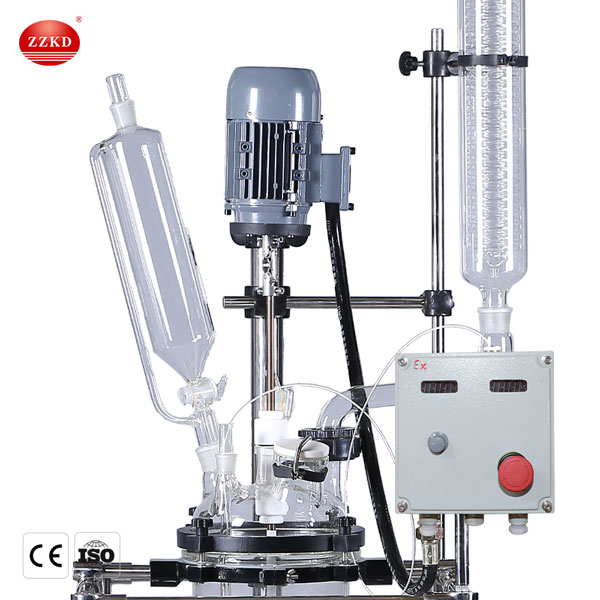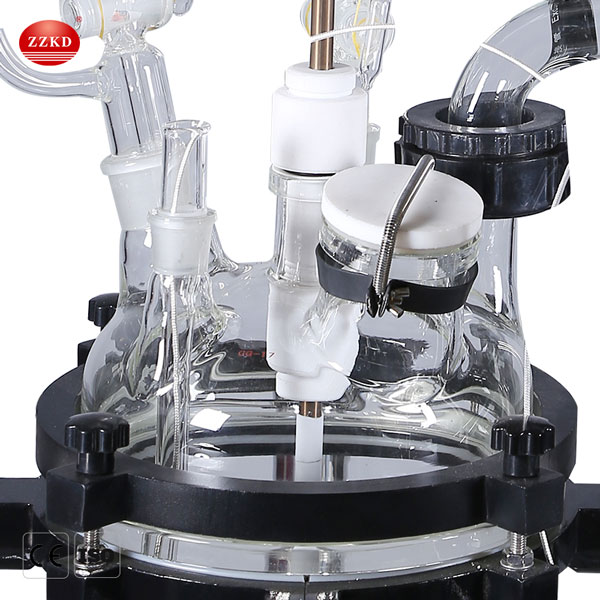Glass pressure reactors are specialized laboratory equipment used in chemical reactions that require elevated pressure and temperature. They consist of a glass vessel and an external pressure source that can increase the pressure within the
20l glass reactor to several atmospheres. The glass pressure reactor has become an essential tool for chemists in many industries such as pharmaceuticals, chemicals, and materials science.
What is a Glass Pressure Reactor?
A glass pressure reactor is a type of laboratory equipment used in chemical reactions that require elevated pressure and temperature. The reactor consists of a glass vessel, typically made from borosilicate glass, and an external pressure source that can increase the pressure within the reactor to several atmospheres. Glass pressure reactors are designed to handle a wide range of reactions, including synthesis, hydrogenation, polymerization, and catalysis.
The Working Principle of Glass Pressure Reactor
The working principle of a glass pressure reactor is based on the principles of thermodynamics and chemical kinetics. The reactor works by confining the reactants in a closed vessel and increasing the pressure and temperature to initiate the reaction. By increasing the pressure, the boiling point of the solvent is raised, allowing for reactions to occur at a higher temperature. The glass vessel allows for visualization of the reaction and facilitates monitoring of the reaction progress.
The external pressure source can be in the form of a gas cylinder, compressor, or pump. The pressure is increased by introducing gas into the reactor vessel, and the pressure is controlled by a pressure regulator. The temperature is controlled using a heating or cooling system, which can be internal or external.
Applications of Glass Pressure Reactor
Glass pressure reactors have become an essential tool for chemists in many industries. They are used in a wide range of applications, including:
Pharmaceutical Industry
The pharmaceutical industry uses glass pressure reactors in drug development, particularly in the synthesis of active pharmaceutical ingredients (APIs). Glass pressure reactors are used in the synthesis of small-molecule drugs, peptides, and oligonucleotides. They are also used in the production of drug delivery systems such as liposomes and microspheres.
Chemical Industry
The chemical industry uses glass pressure reactors in the synthesis of organic and inorganic compounds. They are used in the production of catalysts, polymers, and specialty chemicals. Glass pressure reactors are also used in the production of high-performance materials such as ceramics and composites.
Materials Science
The materials science industry uses glass pressure reactors in the synthesis of nanoparticles, quantum dots, and thin films. Glass pressure reactors are used in the production of materials with unique properties such as high strength, high conductivity, and high transparency.
Environmental Science
The environmental science industry uses glass pressure reactors in the treatment of wastewater and the production of biofuels. Glass pressure reactors are used in the production of biofuels such as ethanol and biodiesel from biomass. They are also used in the treatment of wastewater to remove organic and inorganic pollutants.
How To Choose a Glass Pressure Reactor
• Pressure Rating
The pressure rating is the maximum pressure that the reactor can withstand without rupturing. The pressure rating required depends on the type of reaction being carried out. Reactions that require high pressure, such as hydrogenation, require a reactor with a high pressure rating.
• Volume Capacity
The volume capacity is the maximum volume of material that the reactor can hold. The volume capacity required depends on the scale of the reaction being carried out. Large-scale reactions require reactors with a high volume capacity, while small-scale reactions require reactors with a low volume capacity.
• Material of Construction
The material of construction determines the durability and resistance of the reactor to chemicals and temperature. Borosilicate glass is the most common material used for glass pressure reactors due to its resistance to high temperatures and chemicals. However, reactors made of other materials such as stainless steel or PTFE (Polytetrafluoroethylene) may be required for specific applications.
• Temperature Range
The temperature range is the range of temperatures that the reactor can operate at. The temperature range required depends on the type of reaction being carried out. Reactions that require high temperatures, such as polymerization, require a reactor with a high temperature range.
• Stirring Mechanism
The stirring mechanism is an important factor to consider when choosing a glass pressure reactor. The stirring mechanism is responsible for mixing the reactants to ensure even reaction and temperature distribution. Magnetic stirrers are commonly used in glass pressure reactors due to their simplicity and ease of use.
• Safety Features
Safety features such as pressure relief valves and temperature sensors are important factors to consider when choosing a glass pressure reactor. These safety features ensure that the reactor operates within safe limits and prevent accidents from occurring.
• Cost
The cost of the reactor is also an important factor to consider. Glass pressure reactors come in a range of prices depending on their features and specifications. It is important to choose a reactor that is within budget and provides the required features for the intended application.
Gass pressure reactors are essential laboratory equipment for chemists in many industries. They allow for reactions to occur at elevated pressures and temperatures and are used in a wide range of applications such as drug development, chemical synthesis, materials science, and environmental science. When choosing a glass pressure reactor, several factors must be considered, including pressure rating, volume capacity, material of construction, temperature range, stirring mechanism, safety features, and cost. By considering these factors, chemists can choose the best glass pressure reactor for their application and carry out their reactions safely and effectively.

 Products
Products





